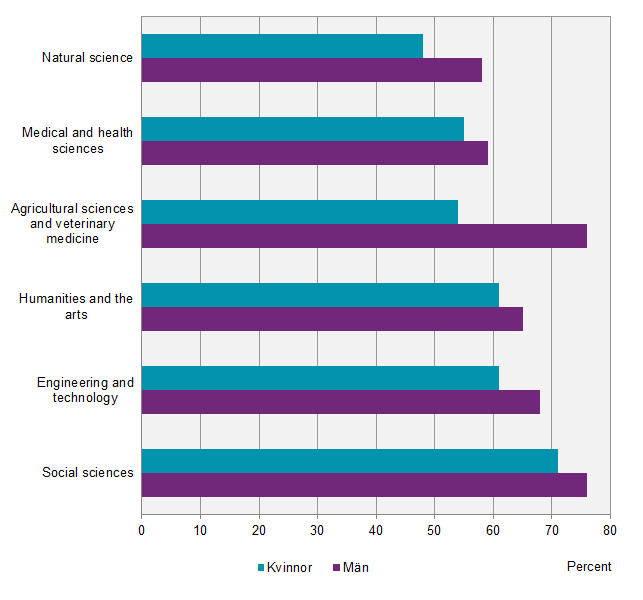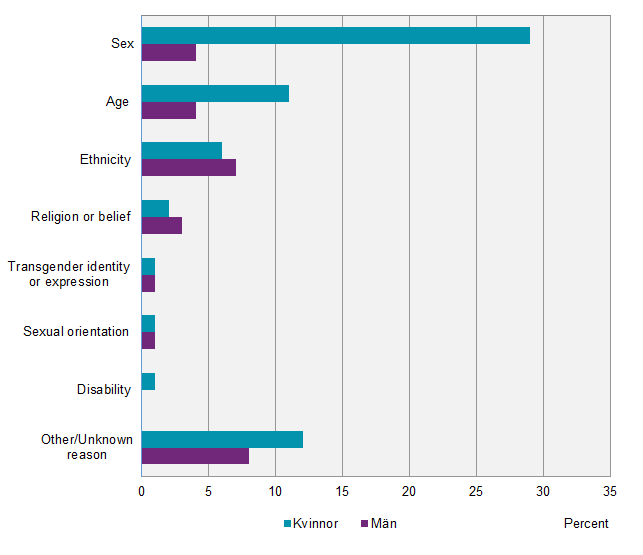PhDs well received on the labour market
Statistical news from Statistics Sweden 2019-04-29 9.30
Most persons with doctoral degrees find qualified employment in which their subject knowledge and skills prove useful. Nine out of ten persons have employment in the first year after receiving their degree, although many of them state that they have an insecure employment.
Quick entry into work
During the first year after receiving their PhD, just under nine out of ten persons had work as their main activity, half of which had permanent employment, and seven percent were unemployed. Four out of five had work that matched the subject area of their doctoral studies and three out of five had qualified employment that required a doctoral degree.
Qualified work that matches the doctoral studies
With regard to matching between education and current work duties, six out of ten persons state that they have work that completely or to a great extent corresponds to the subject area of their doctoral studies. Two out of three persons also consider that their work duties require skills at a corresponding doctoral education level. About half of the persons consider that their main work duties to a large or fairly large extent require their particular specialist skills.

Majority is satisfied with their doctoral studies, but many were subjected to offensive discrimination and sexual harassment.
The report also describes experiences during doctoral studies. Just under nine out of ten persons were overall very satisfied or fairly satisfied with their experiences from their doctoral studies. Experiences among men were better than among women, and persons with a Swedish background were more satisfied than those with a foreign background.
With regard to experiences of offensive behaviour and sexual harassment, about two out of five women state that they perceived that they had been subjected to offensive discrimination. The corresponding share among men was just under one out of five. One out of five women state that they were subjected to sexually offensive acts, compared with only one out of fifty among the men.
It was more common among persons who were subjected to offensive discrimination to report the incident - one out of three - compared with one out of five among persons who were subjected to sexually offensive acts. Among those who reported the incident, most perceived that they did not receive help or support.

Definitions and explanations
“The conditions for persons with PhDs during their doctoral studies and in working life” is a sample survey carried out in the period from October to December 2018. In the report, Statistics Sweden describes the period directly following receipt of the doctoral degree, including how long it took for persons with PhDs with find work following receipt of their degree, to which extent they found work within their subject area, as well as current and former conditions in working life. In addition, experiences from their doctoral studies are presented, such as the perceived involvement of and support from their supervisor and the incidence of offensive discrimination and sexually offensive behaviour by their supervisor and others at the higher education institution. The results include all persons who defended their doctoral thesis in 2008-2017, were under 67 years old, and were registered in the population register in August 2018. Information was collected via questionnaires via post and online. Questions about current work referred to the conditions in autumn 2018.
Publication
A more detailed presentation of the results is published in the thematic report The conditions for PhDs during their doctoral studies and in working life (pdf)
Feel free to use the facts from this statistical news but remember to state Source: Statistics Sweden.
